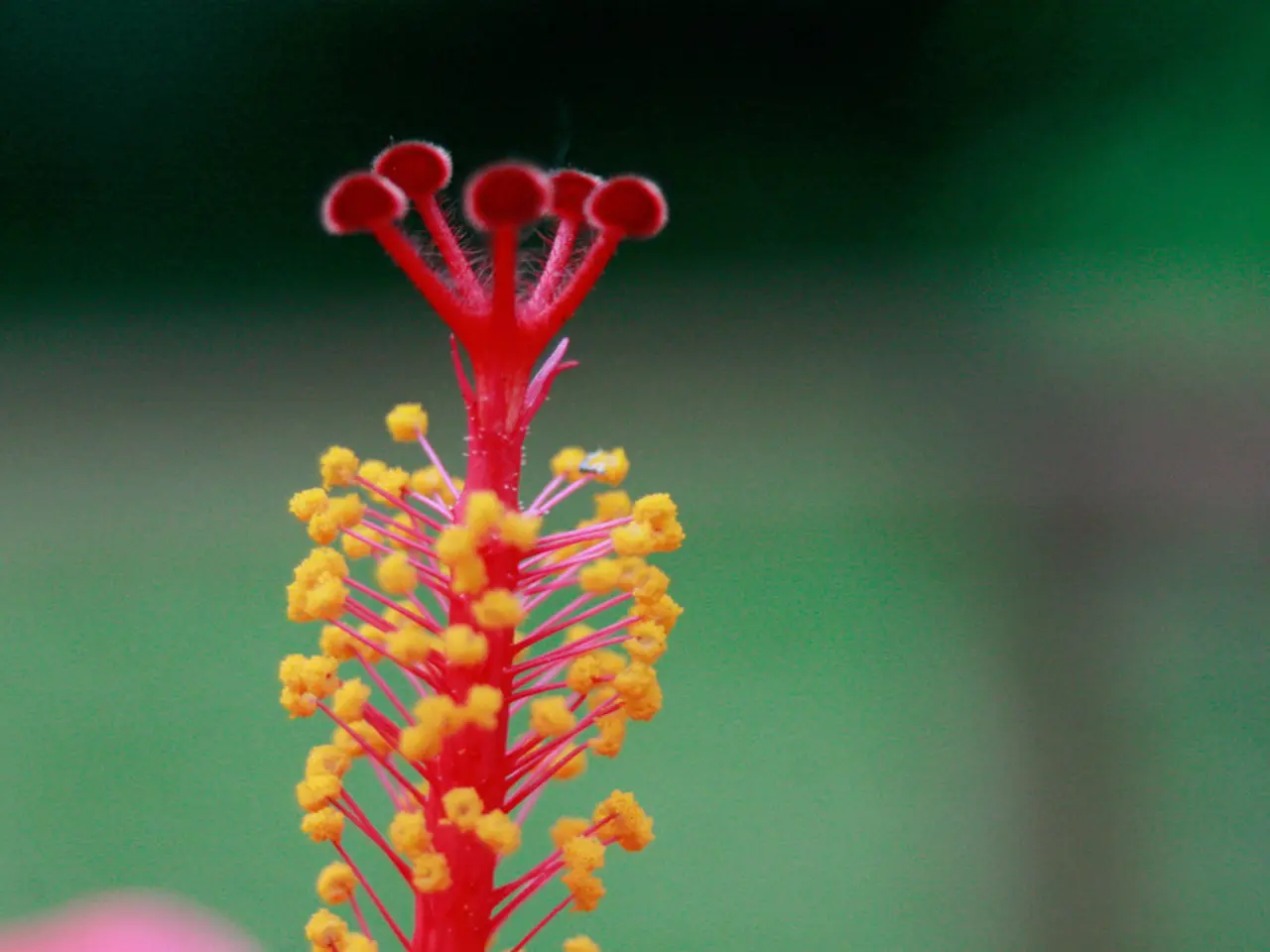Sinus Pain: Recognizing Symptoms, Medical Treatments, and Home-Based Reliefs
Sinus headaches, a common source of discomfort, are often linked to inflammation or infection of the sinuses. These headaches typically cause pressure and pain in the front of the head, particularly around the cheeks, forehead, and behind the eyes, often accompanied by nasal symptoms like congestion and discolored nasal discharge.
While sinus headaches may seem straightforward, they can be easily confused with migraines due to overlapping symptoms such as nasal congestion and facial pain. However, migraines are a neurological condition characterized by intense throbbing pain and sensory sensitivities, often accompanied by nausea and light/sound sensitivity.
Common causes of sinus headaches primarily include viral infections, bacterial infections, fungal infections, allergies, nasal polyps, and structural issues like a deviated septum. Environmental factors such as seasonal changes, smoking, or air pollution can also contribute to sinus headaches.
Over-the-counter medications such as pain or cold medications, antihistamines, and nasal sprays can help alleviate many cases of sinus headaches. For more persistent or recurring cases, prescription treatments may include decongestant medication, nasal sprays containing antihistamines or steroids, and antibiotics for bacterial infections that do not improve on their own.
If a person experiences symptoms such as vision changes, severe facial pain or pressure, high fevers, shortness of breath, difficulty thinking, swelling around the eyes, neck stiffness, they should seek immediate medical help. ENT specialists may use X-rays, CT scans, or MRI scans to investigate structural causes of sinus issues.
People can purchase nasal rinsing kits with premixed saltwater solutions or make their own at home with distilled or sterile water, salt, and baking soda. Steam inhalation can also provide relief for some people, but it does not prevent recurrence.
Allergies, particularly hay fever, can cause blocked or inflamed sinuses and other symptoms like sneezing, red or watering eyes, itchy mouth or throat, itchy eyes, and nasal congestion. It is worth noting that many people who think they have "sinus headaches" are often actually experiencing migraines due to overlapping symptoms.
In summary, understanding the differences between sinus headaches and migraines is crucial for appropriate treatment. While sinus headaches are usually linked to sinus infections or inflammation causing localized pressure and nasal symptoms, migraines are a neurological condition characterized by intense throbbing pain and sensory sensitivities. If a sinus headache does not improve within 10 days or keeps recurring, it is advisable to seek medical advice. For persistent sinus headaches or sinusitis, ENT specialists may refer patients to a specialist for further evaluation and treatment.
- Sinusitis, often causing pain and pressure, can lead to sinus headaches that primarily affect the front of the head, including the cheeks, forehead, and areas around the eyes.
- Recurring sinus headaches may be a symptom of chronic diseases, such as allergies or medical conditions like nasal polyps or a deviated septum.
- Environmental factors like seasonal changes, smoking, or air pollution might exacerbate sinus headaches or sinus infections.
- Over-the-counter medications, such as pain relievers, cold medicine, antihistamines, and nasal sprays, can alleviate symptoms of sinus headaches for some people.
- Persistent or recurring sinus headaches might require prescription treatments, including decongestant medication, antihistamine or steroid nasal sprays, or antibiotics for bacterial infections.
- Seeking immediate medical help is essential when experiencing vision changes, severe facial pain or pressure, high fevers, shortness of breath, difficulty thinking, swelling around the eyes, neck stiffness, or any signs of potential neurological disorders.
- ENT specialists might use diagnostic tools like X-rays, CT scans, or MRI scans to investigate structural causes of sinus issues.
- Home remedies for sinus headaches can include using nasal rinsing kits or making homemade saltwater solutions with distilled or sterile water, salt, and baking soda.
- Allergies, such as hay fever, can inflame the sinuses, leading to symptoms like nasal congestion, sneezing, and itchy eyes.
- It's important to distinguish between sinus headaches and migraines, as the latter is a neurological condition featuring intense throbbing pain, sensory sensitivities, and often nausea and light or sound sensitivity.
- If a sinus headache persists for more than 10 days or recurs frequently, seeking medical advice would be advisable for proper treatment and evaluation.
- For people suffering from persistent sinus headaches or sinusitis, specialists might suggest additional therapies and treatments.
- If not treated properly, sinus infections can lead to respiratory conditions like bronchitis or pneumonia.
- Maintaining digestive health through a balanced diet and regular exercise can help alleviate sinus issues by promoting overall wellness and immune system function.
- Proper eye health can reduce the risk of sinus infections, as strained eyes or poor vision may contribute to increased sneezing and nose pressure.
- Practice hearing protection, such as using earplugs or limiting exposure to loud noises, to prevent pressure buildup in the inner ear and reduce the potential for sinus headaches.
- Aging can affect various aspects of health and wellness, including increased susceptibility to sinus infections and other chronic diseases.
- Seeking professional help when managing weight, cardiovascular health, skin care, mental health, and sexual or reproductive health concerns can also contribute to overall well-being, potentially reducing the risk of sinus issues.




